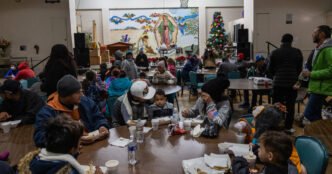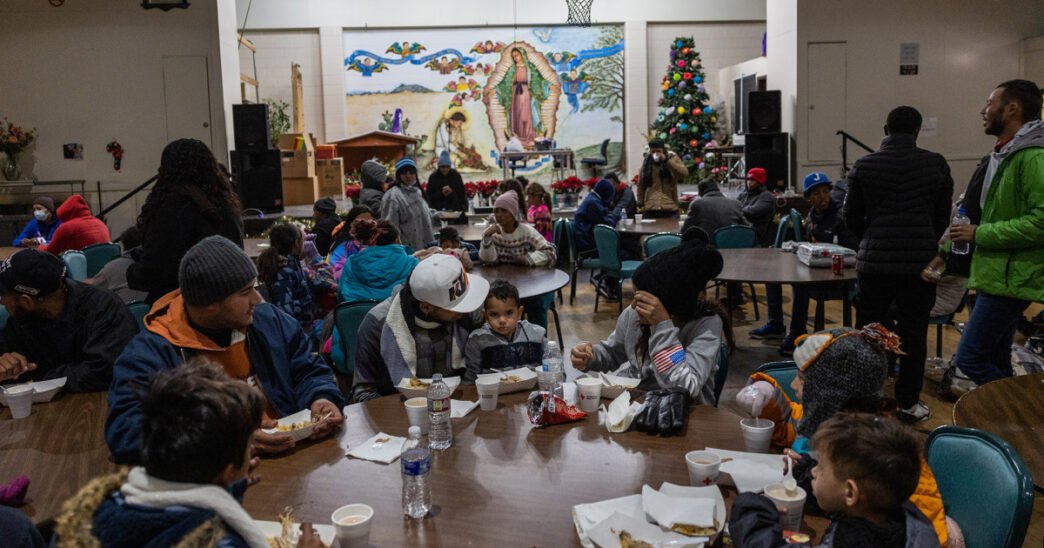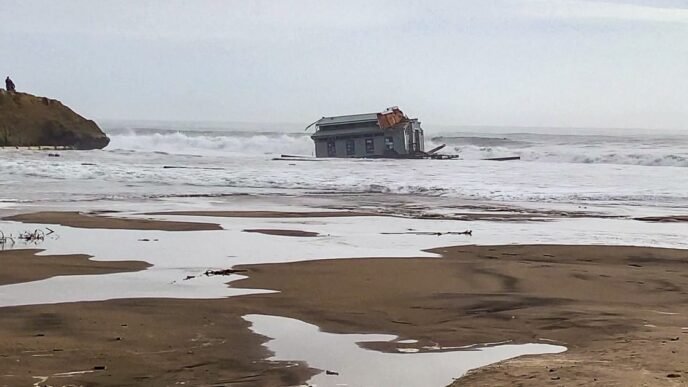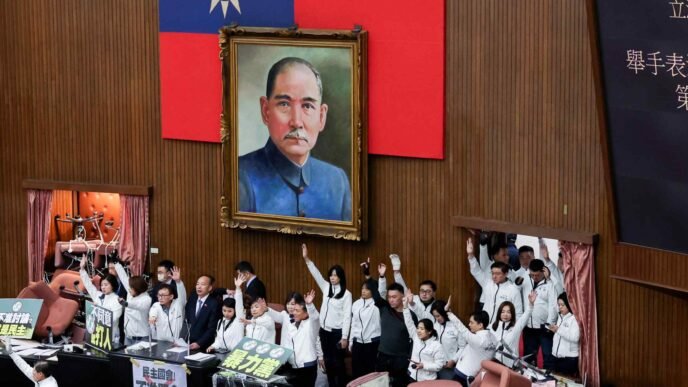Immigrant families are spending the holidays having difficult conversations in anticipation of President-elect Donald Trump’s plan to carry out what he has called “the largest deportation program in American history” once he’s sworn in next month.
“A lot of us are honestly celebrating Christmas together thinking, ‘Oh my God, is this the last time we get to spend Christmas with our family members?’” said Felipe Sousa-Lazaballet, who leads the Hope CommUnity Center, a nonprofit organization outside of Orlando, Florida, that advocates for immigrants and other underserved communities. “This is really heart-wrenching.”
To deliver on Trump’s promise to deport more than 11 million undocumented immigrants, the incoming administration intends to roll back policies that restrict immigration enforcement actions in sensitive places like schools, churches and hospitals, as well as their respective surrounding areas, NBC News reported.
“There’s no way they can deport millions of people if they don’t go for the low-hanging fruit, and this is it,” Sousa-Lazaballet said.
NBC News spoke with nearly a half-dozen immigrants’ rights advocates across four states, and they all said they have received an increased number of calls from immigrants asking about their rights. They have also heard questions from community groups, schools and churches about what their roles are in the face of such possibilities.
In response, the advocates and groups are conducting know-your-rights trainings and helping vulnerable families prepare plans of action in case an undocumented relative is suddenly detained or deported.
In Texas, a new law requiring some hospitals to ask patients about their immigration status is starting to “push folks further into the shadows,” showing a glimpse into what happens when sensitive locations become targets of immigration enforcement, said Javier Hidalgo, legal director of RAICES, a nonprofit group in San Antonio that advocates for refugees and immigrants.
Texas has become a model for immigration crackdown, Hidalgo said, but that has also motivated advocates and nonprofits to provide tools and resources to affected families to curb the detrimental effects of detentions and deportations. These stand to impact nearly 5.8 million U.S. households, in which at least one relative is undocumented.
Like Texas, Florida will also “see the brunt” of Trump’s immigration policies sooner than other states, since Gov. Ron DeSantis has shown himself to be an ally in advancing the incoming president’s agenda, Sousa-Lazaballet said.
Similar to what Hidalgo is doing in Texas, Sousa-Lazaballet in Florida has been facilitating thousands of difficult, but necess, conversations to ensure immigrant families have a “dignity plan” in place.
The plan includes redacting power-of-attorney documents or a guardianship that outlines who will take care of the children left behind if an undocumented parent is picked up by immigration authorities. Sousa-Lazaballet said this ensures parents don’t lose custody of their children to the Department of Families and Children simply because they never made it home after being detained or deported.
In Phoenix, Arizona, Jose Patiño, vice president of education and external affairs at Aliento, an advocacy organization, is doing the same with its “family packets.” Patiño said it’s important for families to sort out legal guardianship over any of their properties and financial accounts to ensure the relatives left behind can access them if the main breadwinner is detained or deported.













